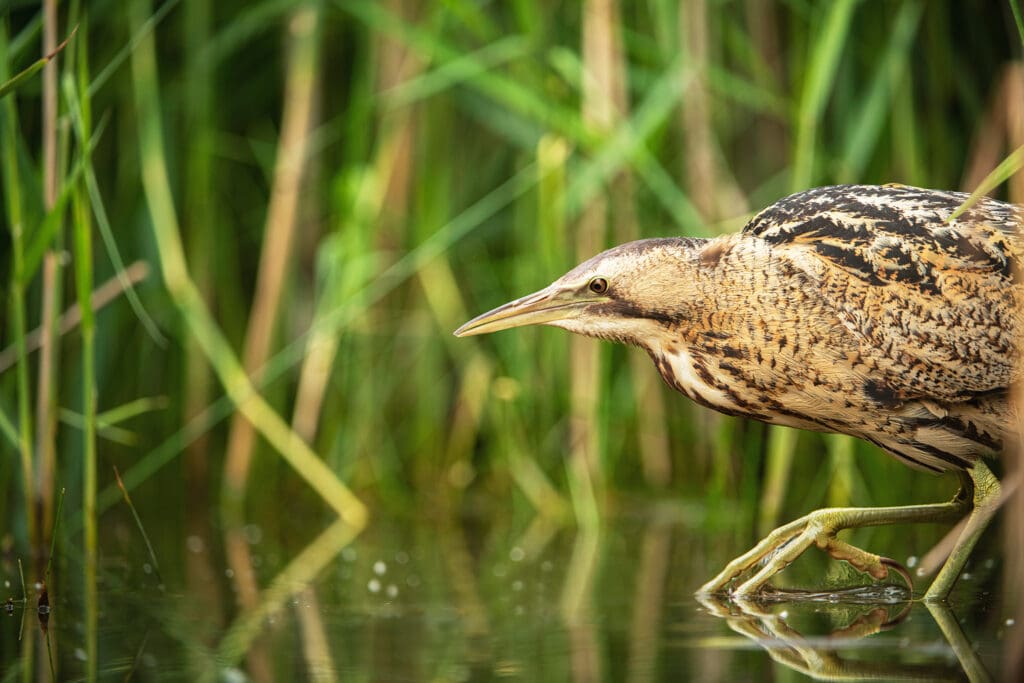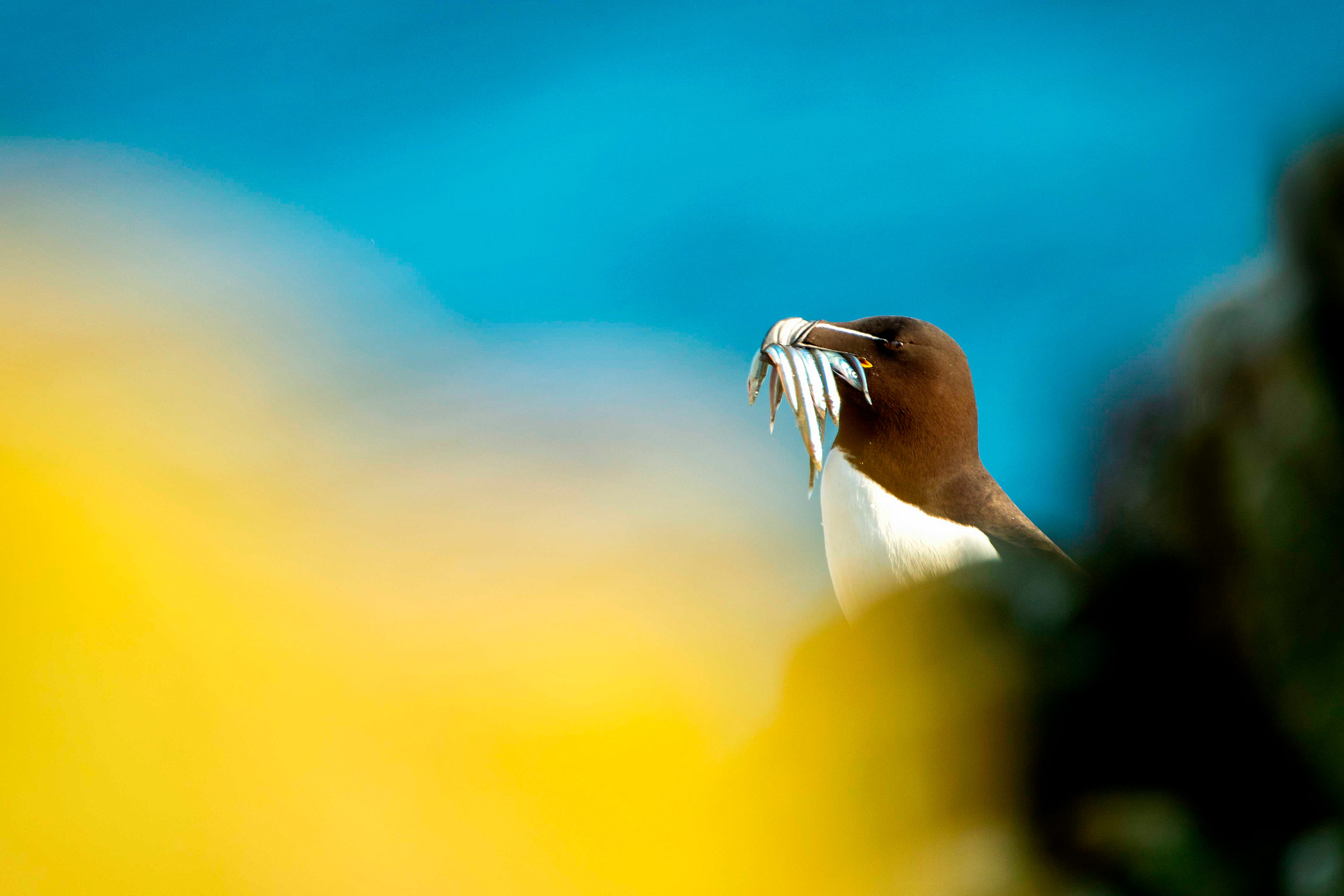There is no doubt we are in it for the long haul. The RSPB has been around for a long time – 135 years, in fact. Chief Executives may come and go but the organisation and its cause are here to stay. We stick to our guns, follow the evidence and simply don’t give up.
I’ve never felt this more keenly than following recent decisions by the UK and Scottish Governments to close sandeel fisheries in the English waters of the North Sea and all Scottish waters. These somewhat innocuous fish are a major pillar of our marine environment, feeding a variety of sea life including Kittiwakes, Puffins and Razorbills.
The importance of sandeels, and the detrimental effect commercial fishing was having, was recognised by the RSPB and others years ago, and we have been working for more than three decades to achieve this goal. There have been staff members, now retired, who worked on this problem their entire RSPB career!
These big wins in government policy, however long they take, matter because of the scale of their impact. They don’t come often, but when they do, they buoy all of us, showing what is possible with hard work, luck and sheer bloody-mindedness. So, to get two in a short space of time was something special.
The other win was the passing of the Wildlife Management and Muirburn Bill, marking a significant moment in the history of land management in Scotland and another huge win for nature. Many organisations, with the RSPB at the forefront, have again been campaigning for decades to tackle crime against raptors, to better protect wildlife, to stop the burning of peat and to improve the condition of our upland habitats. With Scotland now leading the way, we will continue to focus south of the border to seek similar legislation in England.
‘These big wins in government policy, however long they take, matter because of the scale of their impact’
Working at scale, both in terms of geography but also in time, is one of the RSPB’s main strengths. We like to think big, and this is reflected in the projects we take on. Island restoration is a great example. Lundy, some of the Scillies and the Shiants are all islands that have benefited from the removal of introduced species – big, complex operations, working alongside local communities. The results have been spectacular, with large numbers of seabirds returning to breed almost as soon as we leave.
But because we think big and often work at the edge of what’s possible, things don’t always go the way we would like. For example, on Gough Island in the South Atlantic – we got so very close to restoring this seabird Mecca, but a scant few albatross-eating mice survived and we are having to rethink what to do next. That doesn’t mean we shouldn’t attempt difficult things. If we don’t step up, then, in our experience, it is more than likely that no one else will.
In Orkney, our current attempts to remove recently introduced Stoats is taking longer than we had initially hoped, mainly due to restrictions on working during the pandemic. These islands are nature-rich, hosting very high densities of breeding and wintering waterfowl and waders. They are also home to internationally important numbers of breeding seabirds, including more than 15% of the UK’s breeding Black Guillemots and more than 10% of the global population of Great Skuas.
Restoring these islands and removing the Stoats will not only help Orkney’s amazing nature but will also benefit farmers and the tourism the wildlife brings. I first visited many years ago and it is somewhere I have been drawn back to again and again, as have so many others. And the plants and wildlife are very much part of the allure.
Tackling the nature and climate crisis is not easy; we must be bold, innovative and think big. The RSPB is all these things. And, with your wonderful support, so very, very tenacious.

How to make a difference
Help us demand action now and hold decision-makers to account by doing one or all of the following:
- Write to your local elected representative
- Write to your local media and let them know about the need for action
- Share campaigns on social media and within your networks
- Request a meeting and speak directly face-to-face to your local elected representative and constructively share your concerns
- Take part in demonstrations and marches
For more information on what we need all politicians to do, and advice and guidance on how you can ask them to do it, click the button below
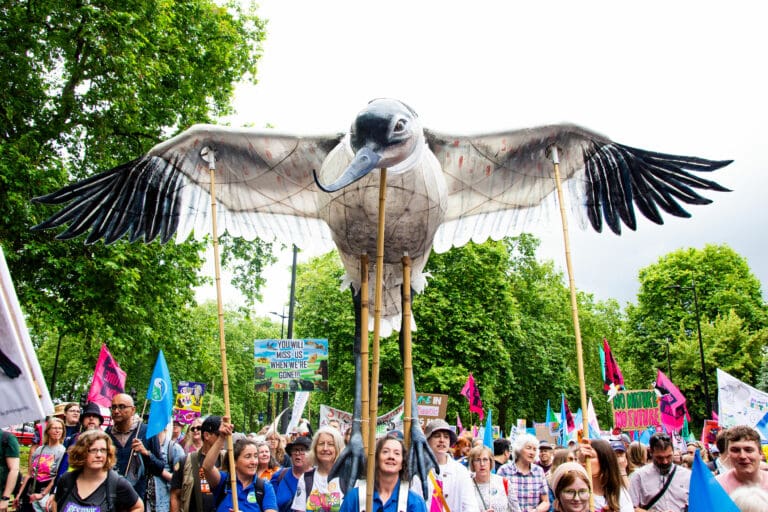
Restore Nature Now march in London, June 2024. Photo: Sennen Powell
You might also like
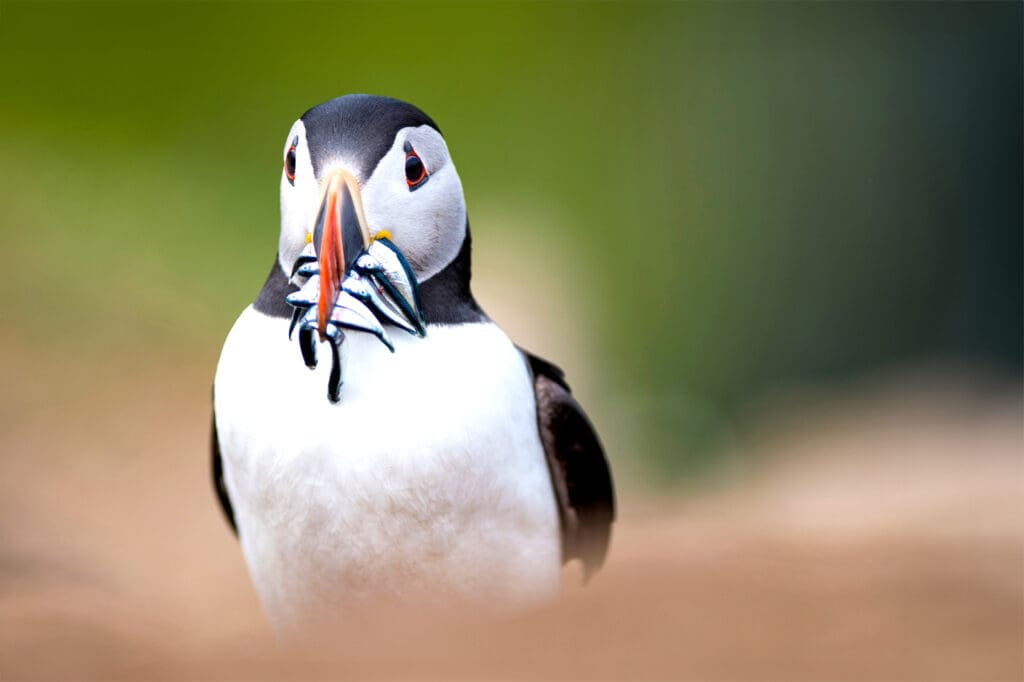
Sandeel success
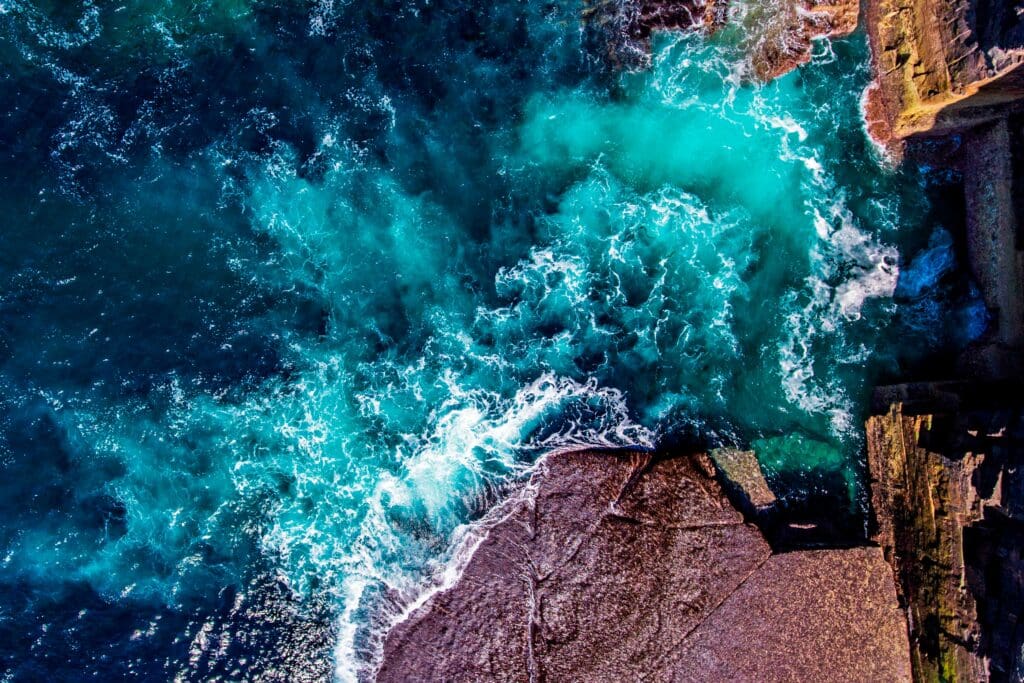
Ancient Archipelago
